Exploitation of agricultural land for community development and self-sustainability
Give a Man a Fish, and You Feed Him for a Day
Teach a Man To Fish, and You Feed Him for a Lifetime
Instead of paying endlessly, an action plan for self-sustainability is much more efficient. In order to become (largely) independent of (foreign) sponsors, agricultural land is acquired. Agriculture projects and livestock are utilised. The cultivation of maize, beans, tomatoes, cabbage and watermelon are chosen according to market demands. In addition, the products will be changed regularly to prevent soil depletion. Naturally, this will be decided in collaboration with the local population and agricultural experts. By breeding livestock, prosperity in the villages will further increase.
Yet self-sustainability should not be seen financially only. Building self-confidence and empowerment in villagers, teenage mothers and children, is an essential part of success in the future (as mentioned in his speech by the mayor in March 2023). The theme “we can do it” runs like a red thread through all our programs. Information about better ecological techniques & the environment and a healthier lifestyle is imperative.
The poorest do not own their own land. After all, they have no money for food, education or medicines, let alone the ability to buy their own land. In contrast to many other countries, agricultural land in Uganda is still affordable. Moreover, the location and climate ensure that agricultural land in Uganda is usually very fertile.
That is why we want to acquire agricultural land, which will be made available to the local population! This provides work and income, with ALL profits benefiting the poorest.
The land is used for various products, which provide the best return. As a result, the yields of the harvest, minus the costs, will generate an income. All harvest proceeds fully benefit the poorest of the poor. With your help, we are able to help thousands of underprivileged children and young people to a hopefull future.
Generating an income for unemployed families
In Uganda, unemployment is on average 70%. In rural areas this is often even higher. Since there are no benefits of any kind in Uganda, unemployment means poverty, hunger and lack of medical care and education.
The profit goes entirely to the unemployed and their families in the villages and to the primary school for school fees and school supplies. The latter is transferred directly to the school. Moreover, they are empowered by learning domestic agriculture and other life skills to generate extra income at home.
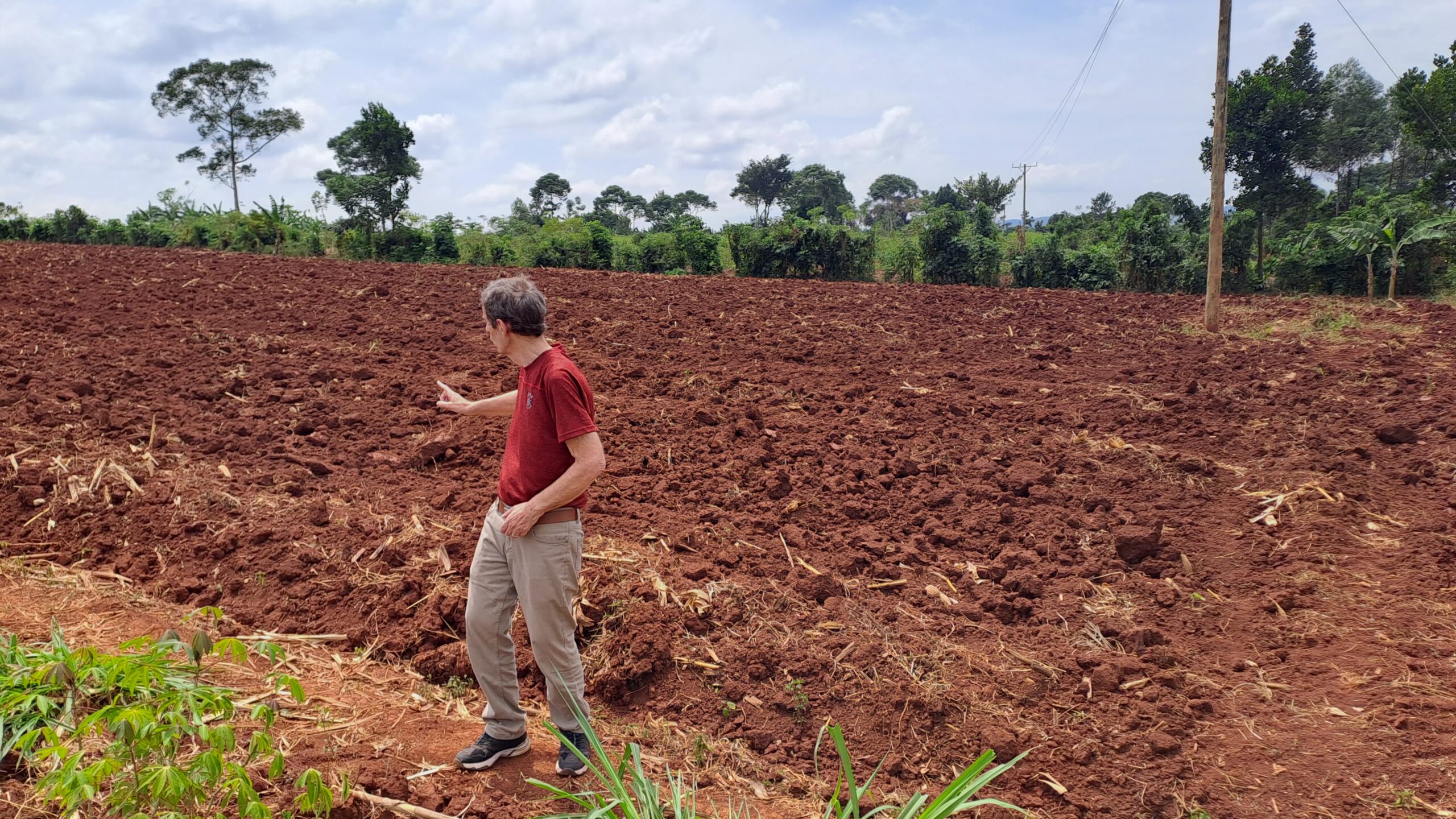
The chairman inspects the land in 2023
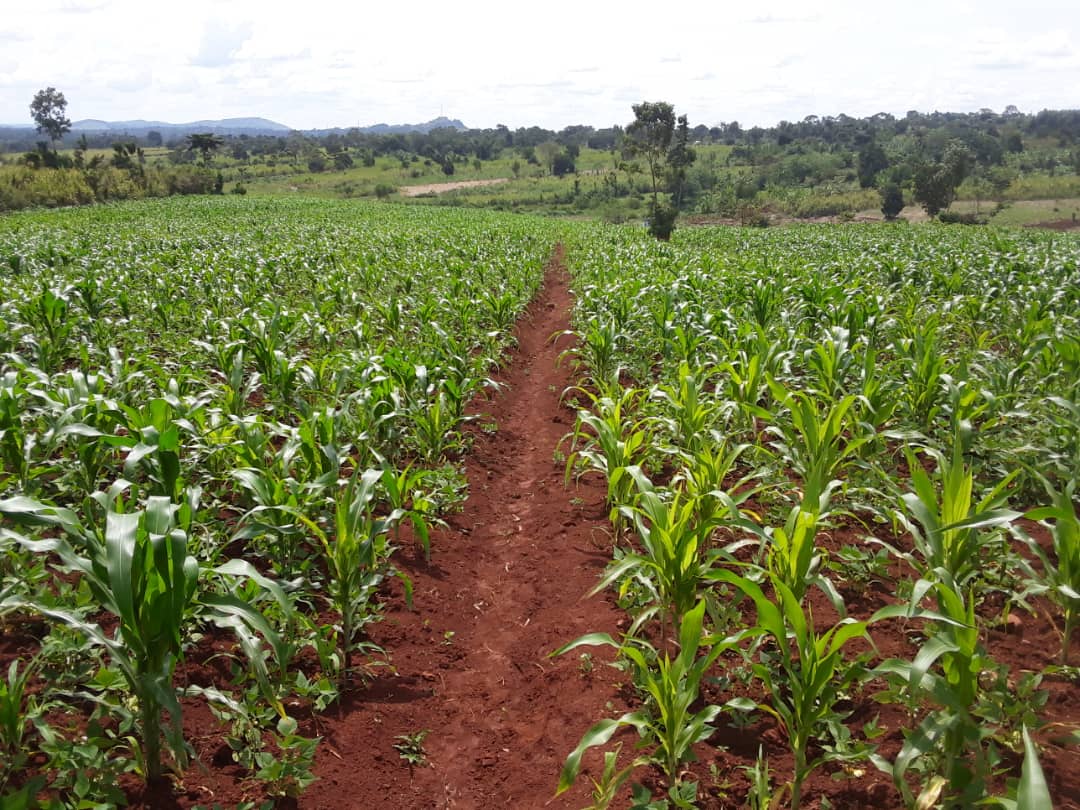
A maize field
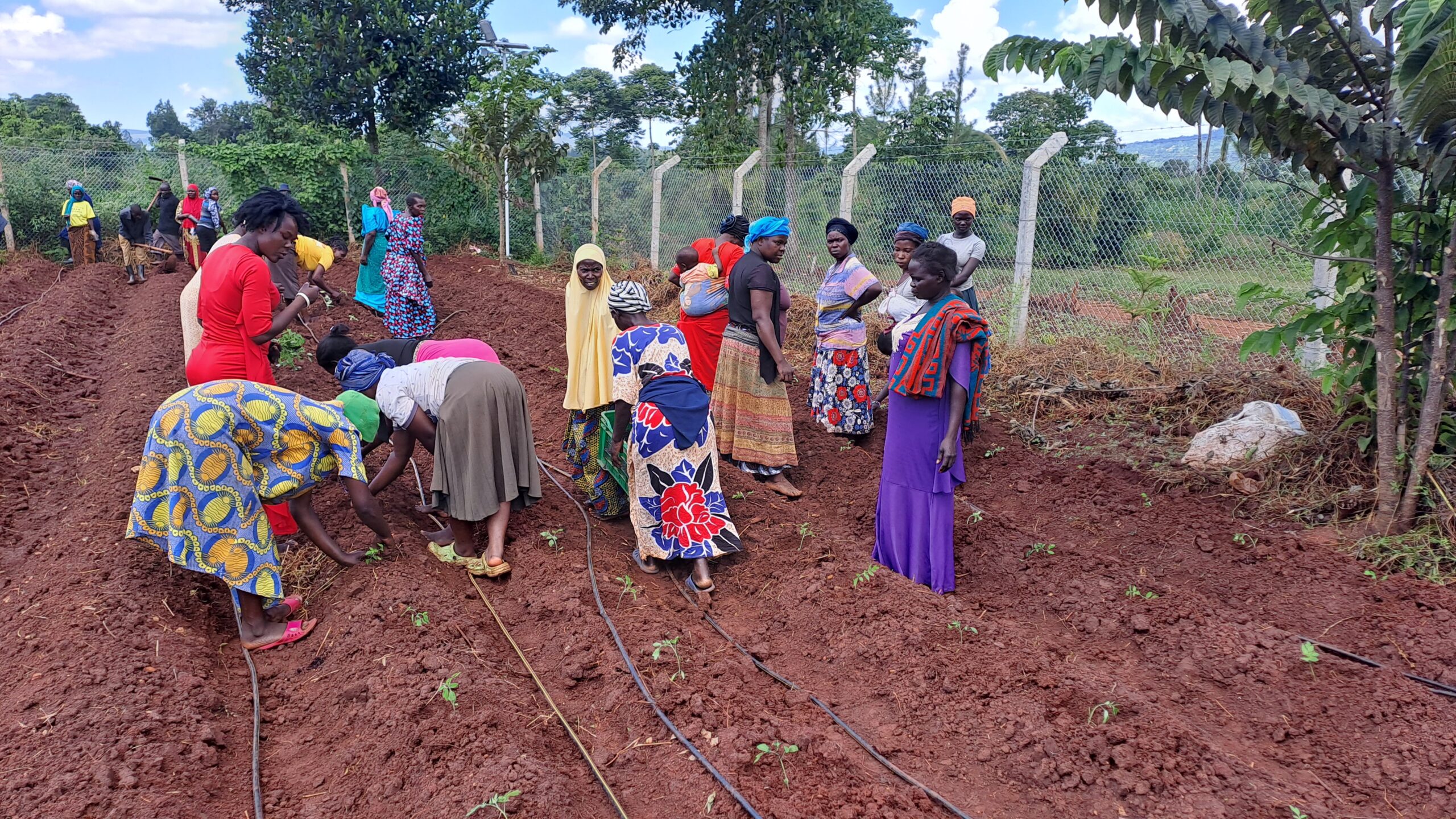
Villagers at work for sustainability
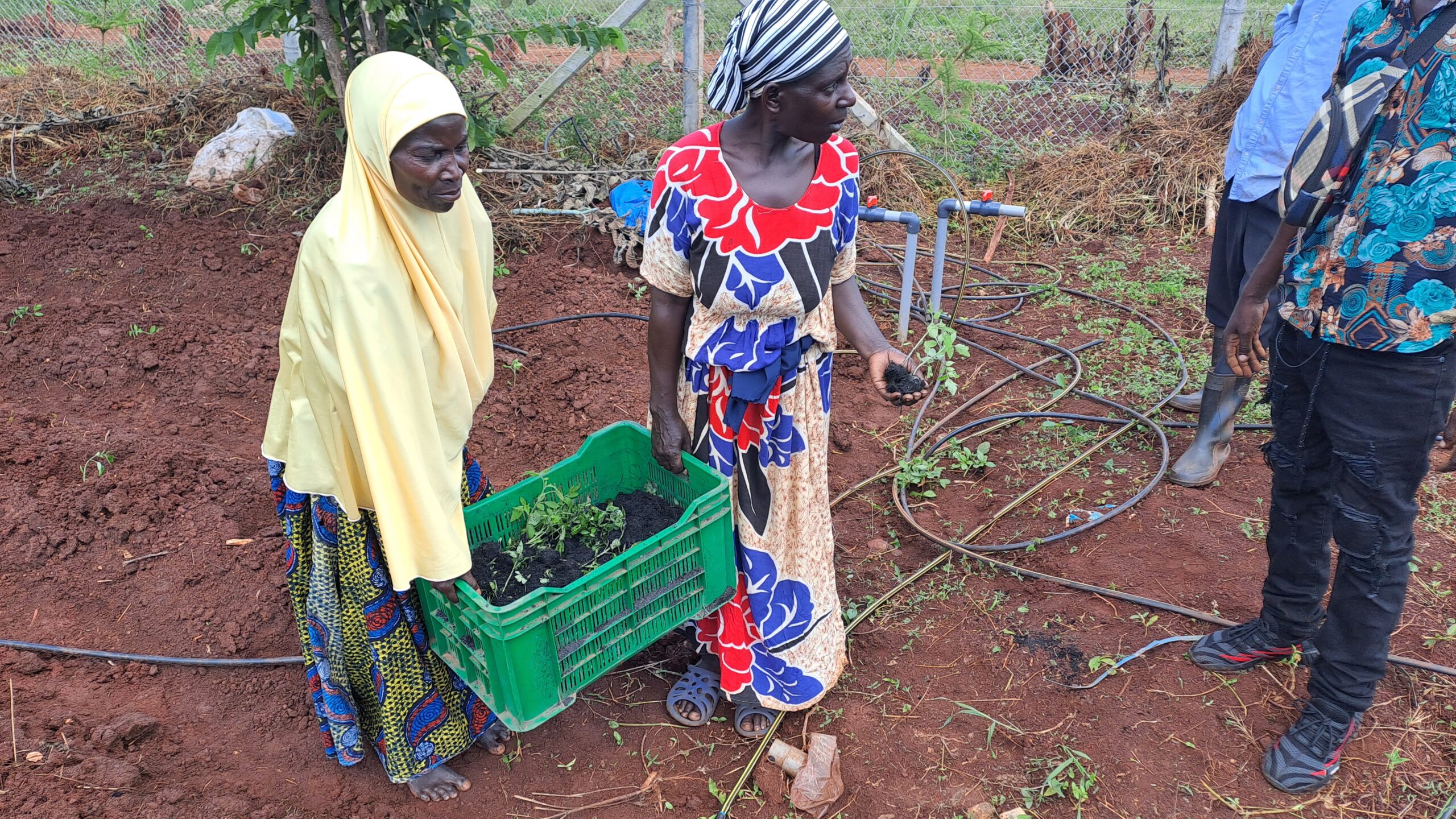
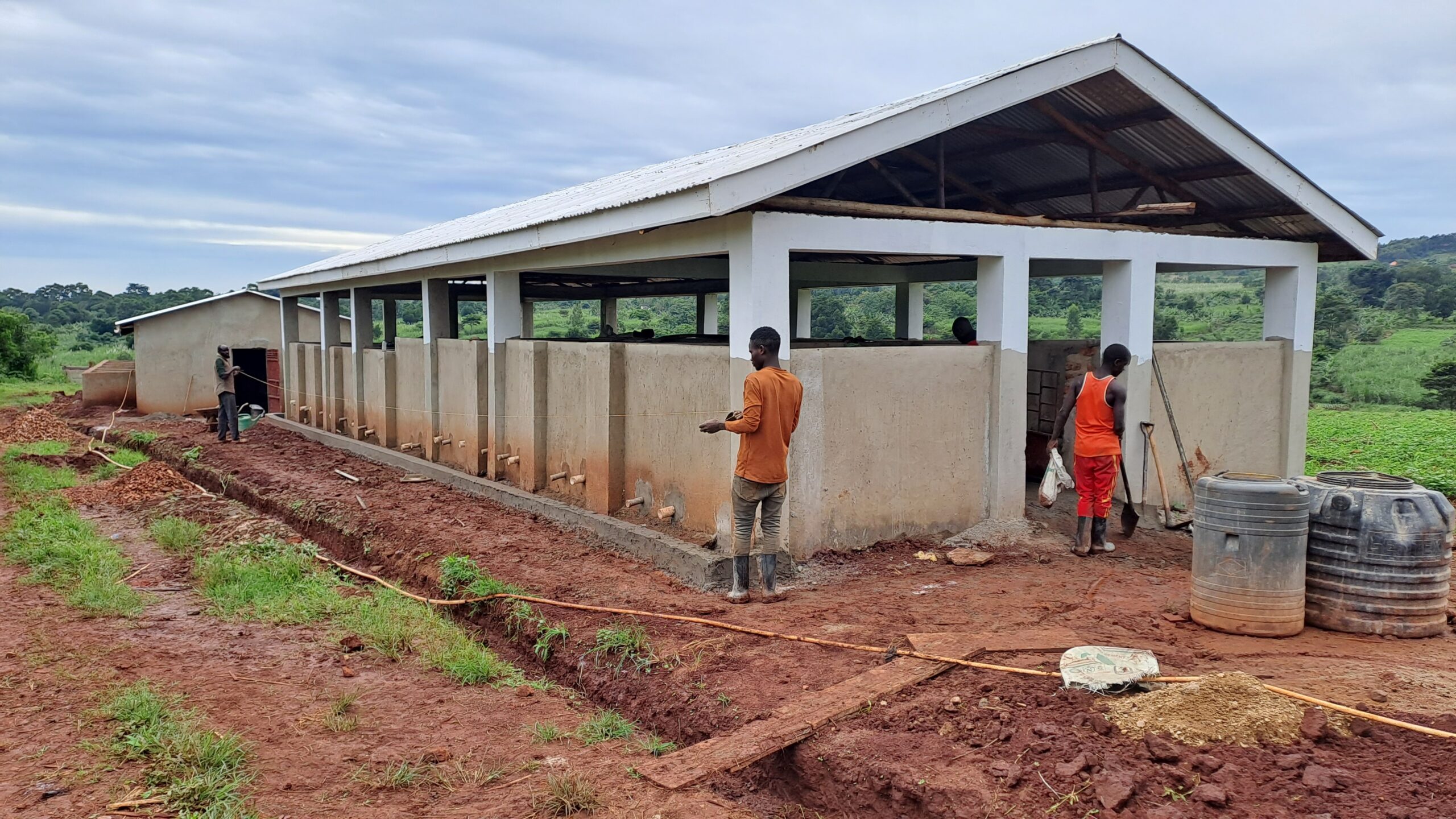
Lifestock breeding